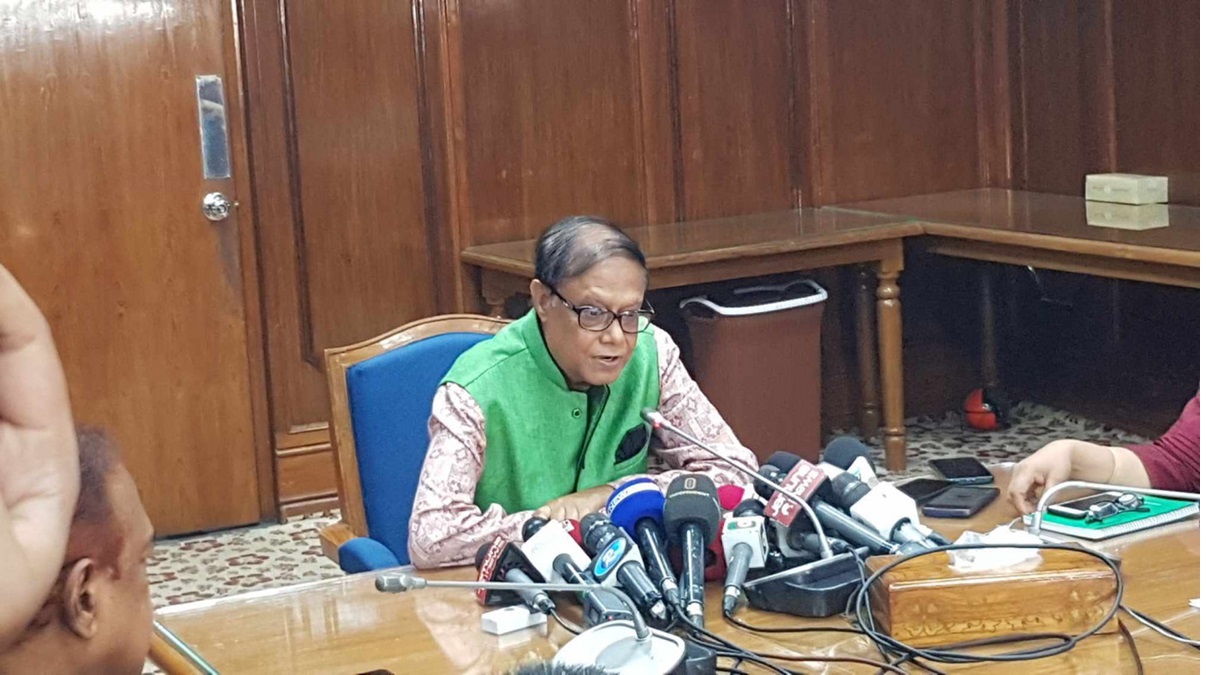BB outlines 4 challenges in MPS for second half of FY25
BB anticipates exchange rates to remain stable
BB to maintain ‘tight’ stance in MPS
BB expecting 7-8pc inflation by June
Bangladesh Bank (BB) Governor Ahsan H Mansur commented on this in today`s monetary policy statement (MPS) for the second half (H2) of the current fiscal year 2024-25 (FY25).
Answering a question from a journalist he said that he is liable only for his tenor, not for the past activities of the central banks.
Reserve money hacking, money laundering, and many wrong initiatives made by BB that influence the bank sector weaken. Chief Advisor and stakeholders want to probe about those although the governor`s tone was different about those issues.
He said we want to build up confidence in the banking sector and reserve stable. It takes 6 to 12 months to achieve the targets. We expect the inflation rate will be 6 to 7 percent within next June. we are stable in the current bill of payment and also satisfied in overall depreciation. Import amounts ahead of Ramjan, we fill up the big demand in this situation.
"So far, we have seen about 24% growth in remittances. Remittance inflow will increase ahead of Eid and Hajj. In the current fiscal year, we have received $6 billion more in remittances than the previous fiscal year, and another $5-6 billion is expected due to export growth," said the governor while announcing the monetary policy for the second half of FY2024-25.
The governor also mentioned that Bangladesh`s current and financial accounts are in surplus, strengthening the overall balance of payments.
"The country has effectively managed import pressure, particularly after a surge in imports in December and January. With seasonal import demand expected to decrease after Eid, the exchange rate is unlikely to face significant volatility," he added.
To control inflation, the governor emphasized the importance of maintaining exchange rate stability. "Stability does not mean fixing the rate. The dollar is currently at Tk122, and it could reach Tk124, but that does not indicate instability. Due to exchange rate stability, imported inflation remains manageable," he said.
Mansur also addressed concerns over exchange rate manipulation by certain aggregator exchange houses.
"The rate they ask for is not the market price. The rate we say is the market price. They do not determine the exchange rate policy, we do. Some aggregators are manipulators who have been trying to influence the market, but we will not allow them to dictate exchange rates," he added.
Regarding potential exchange rate fluctuations, he warned against allowing the rate to be fully market-determined at this stage.
"If we let the rate go unchecked, it could shoot up to Tk135-140, making inflation control difficult. We will only purchase remittance dollars at a fair price and will not support excessive pricing by aggregators," he said.
However, the governor acknowledged that Bangladesh should ultimately transition to a free-floating exchange rate, but only when the right conditions are in place.
Mansur revealed that a foreign delegate recently inquired why Bangladesh Bank was not purchasing dollars from a particular aggregator exchange house from their country. "My response was clear: if they cannot offer a fair price, they have no business operating in Bangladesh."
The dollar hit an all-time high of Tk128 in December last year due to pressure from overdue import payments and the alleged manipulation of aggregator exchange houses. The rate was later reduced by the intervention of the central bank. Currently, banks are collecting remittance dollars at the highest rate of Tk122.50.
Regarding exchange rates, the new monetary policy states, "BB has been implementing a crawling peg exchange rate mechanism to enhance both flexibility and stability of the rate in the foreign exchange market. This framework is designed to ensure the stability of the exchange rate while preparing for an eventual transition to a more flexible exchange rate system shortly.
"BB has already stopped intervening in the exchange market by completely stopping sales of foreign exchange in the interbank market to support exchange rate stability. BB has established a methodology for calculating the Foreign Exchange Spot Reference Exchange Rate (RR) which is prepared and published twice per day.
"Prudent exchange rate management under the current system is anticipated to strengthen remittance inflows, stimulate export activities, and augment foreign exchange reserves."
Islami Bank no longer needs liquidity support and United Commercial Bank PLC has been recovering effectively.
"We can see some banks have performed well. Islami Bank no longer needs liquidity support. It has already stood on its own feet. We have also seen UCBL recover effectively," Ahsan H Mansur.
The governor said, "We are working on reforms in the banking sector, and already, the boards of eleven banks have been restructured.
For Banks s facing liquidity crises, we will provide additional support if necessary. Our goal is to ensure that no small depositors leave the bank empty-handed."
He further said the central bank will continue the reform activities and assess the extent of losses in each bank.
"Under the ousted Awami League government, the two banks with the highest loan frauds have recovered. Once these larger banks are stable, we will be able to support the smaller ones. We expect to strengthen the position of the banking sector in Bangladesh. We aim to complete the reform activities within the next one to one and a half years."
The recovery of Islami Bank does not mean that all their problems have been solved, the governor said, adding, "They still have non-performing assets, which is common. Over time, they will be able to address these issues. It might take three to four years for them to fully establish themselves as a strong bank."






